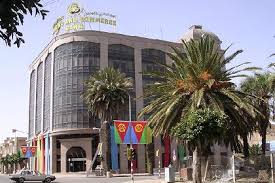News Highlights: new EU resettlement plan, torture in Libya, Sudan travel ban dropped
In this week’s news highlights: European Commission presented a migration plan which includes resettlement for at least 50,000 refugees from North Africa and the Horn of Africa; focus on reducing migration could destabilise countries and endanger human rights, says Saferworld; Eritrea refers to border situation in statement at UN General Assembly; Ethiopian ethnic clashes between Oromo and Somali investigated; UN refugee agency published a video on extortion and torture in Libya; German-based migrants charity states that it was fired at by Libyan coast guard.

